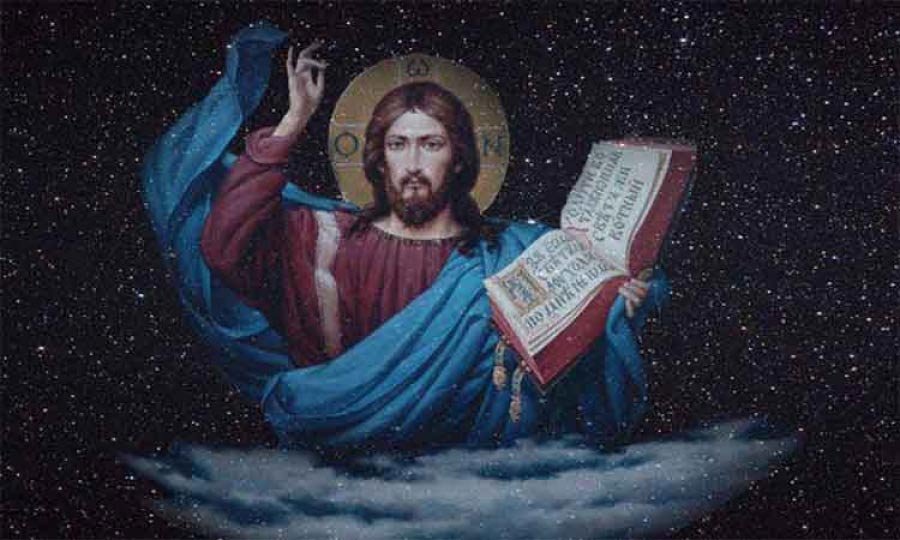
A key part of the Divine Liturgy is the Sermon, which from Apostolic times has been an established part of the Service. The Lord Himself used to speak to the people who were gathered in the Synagogue after reading passages from the Old Testament. St. Luke the Evangelist describes the first sermon of Jesus in Nazareth (Luke 4:16-27). The Holy Apostles also preached during the Eucharistic Meetings of the faithful. A common example of this can be seen in the Acts of the Apostles, when St. Paul preached in Troas until midnight, and the young Eutychus fell from the third story, after having fallen asleep (see Acts 20:7-11). There are Holy Canons which decree that Bishops and Priests (who are presiding over worship) are to teach the word of God to the clergy and people gathered in the churches every day (especially on Sundays). The 68th Apostolic Canon decrees: "Any Bishop or Priest who does not take care of his clergy, and all the rest of the people, and does not teach them the doctrines and works of piety, let him be deposed until he is corrected. But if he persists in his negligence and indifference let him be completely defrocked, for he has proven to be unworthy as a Bishop and Elder-Priest".
On the subject of teaching the people, the rules of the Church (especially for the Bishops) are absolute. This can be seen particularly in the Prayers of the Ordination of a Bishop. There, the Church commands that the ordained Bishop is to be “guiding the blind; enlightening those who walk in darkness; correcting the ignorant; teaching the children; shining like a light in the world. Then, Lord, having in this life strengthened those committed to his care, he may receive the abundant reward prepared for those who valiantly labor in preaching your Gospel.” (The Second Prayer from the Ordination of a Bishop).
From all of this, we can see how vital it is for the Bishop to nurture and support the flock entrusted to him by Christ with the Word of God daily. Of course every Bishop knows this, but we mention it in order to help believers understand how necessary the Sermon is in the Divine Liturgy of our Church. The faithful should attentively listen to it, which is the voice of God reaching out to us in simple words. To understand the relationship between the Sermon and the Holy Mystery of the Eucharist, we can use the image of fabric weaving. That is, just as a fabric is woven into an inseparable unity with the warp and the weft, so the Holy Eucharist is maintained and completed by the divine Word. The Holy Eucharist sanctifies the faithful and unites them with Christ, and so the close connection to the divine Word is clear. This harmonious connection of the two provides us with the completion of the work of our salvation in Christ the Savior. After all, it is Christ Himself who acts both in the Sermon and in the Divine Eucharist.
With the Sacred Readings and Sermon, the first part of the Divine Liturgy, known as the Liturgy of the Catechumens, is essentially completed. This whole first part of the Divine Liturgy is summarized in a verse from St. John the Evangelist: "And the Word became flesh and dwelt among us, and we beheld His glory, the glory as of the only begotten of the Father, full of grace and truth.” (John 1:14). By presenting the Holy Word and Work of Christ during the Divine Liturgy, we claim to hear Christ, to see Christ, and to imitate His holy life.
At this point a question arises: Is it enough for the Orthodox Christian to listen carefully to the Sermon, and then just focus on how they alone will benefit from it? The New Testament is full of exhortations to Christians to bring the word of God to others. We all surely remember the Parable of the Talents (see Matthew 25:24-30). The servant who did not use the talent he received but hid it in the earth was condemned by the Lord. The Church in her hymns characterizes this buried talent in the parable as the word of God and urges us: " Soul, you have heard the sentence pronounced on him who hid his talent, so do not bury God's word. Rather, proclaim His wonders, so that abounding in grace, you may enter into the joy of your Lord." (Doxastikon of Great Tuesday). St. Paul exhorted his disciple Timothy with these words: "And the things that you have heard from me among many witnesses, commit these to faithful men who will be able to teach others also" (2 Timothy 2: 2). This was practiced by the early Christians and continues to this day. The founding of the Church of Rome is an impressive example. Before the Apostle Paul or Peter or any other Apostle or Bishop went there, a dynamic Church began to develop in the capital of the empire, formed by ordinary Christians going to Rome for personal business or errands. So when the Apostle Paul arrived in Rome, Luke writes: "when the brethren heard about us, they came to meet us... when Paul saw them, he thanked God, and took courage” (Acts 28: 14-15).
My dear brothers and sisters, I hope that each of us understands their own part in the responsibility of spreading the word of God in their surroundings. Amen.





